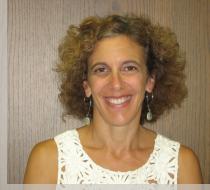The Psychology of Interpersonal Forgiveness
By Suzanne Freedman, Ph.D.
Professor, University of Northern Iowa
I loved seeing the article on forgiveness in last month’s newsletter. I have discovered in my 30 years of studying forgiveness from a psychological perspective, that there are many misconceptions associated with what it means to forgive and contexts associated with forgiveness.
A common comment I hear from students in my university course on interpersonal forgiveness is that forgiveness is more complicated than people realize. It may not be the same notion of forgiveness preached by one’s parents or a religious leader. It goes beyond just saying the words, “I’m sorry” or “I forgive you.” Although we often ask for forgiveness for minor injuries, forgiveness occurs in the context of deep, personal and unfair hurt (Smedes, 1996, The Art of Forgiving).
Specifically, forgiveness involves a willingness to abandon one’s right to resentment, negative judgment, and negative behavior toward an offender, while fostering the undeserved qualities of compassion, empathy, and goodwill toward one’s offender (Enright, 2001, Forgiveness is a Choice). Notice that in this definition, one has a right to resentment and that the offender does not deserve one’s compassion and goodwill.
Although frequently confused with forgetting, acceptance, condoning, excusing, pardon, and denial of anger, forgiveness is none of these. When we forgive, we decrease our negative thoughts, feelings, and behaviors toward the offender and over time, increase our positive thoughts, feelings, and sometimes behaviors toward the offender. We can also only forgive for the way that we were personally impacted by an offense.
Another common misconception about forgiveness is that you cannot forgive unless you receive an apology from the offender. This may be true for reconciliation but not forgiveness. Forgiveness is something people can do all on their own, for their own well-being, without any response from the offender. Forgiveness can sometimes lead to reconciliation between the injured party and the offender, but it does not have to.
I began my career by educating adult incest survivors about forgiveness, and have recently turned my attention to children and adolescents. By teaching students about the psychological process of forgiveness, we are helping them develop healthy ways to express feelings, understand the perspective of others, and practice empathy and kindness.
As summarized by a 5th grader who was part of a forgiveness education program that I taught:
“I’ve learned that anger is a natural feeling. It takes time to forgive. You don’t have to forgive right away. They don’t always apologize. Forgiveness is one step closer to healing. You don’t have to be friends with the offender after. Apologies make forgiving easier. Forgiveness is made by the person who was hurt. If you want revenge, then you haven’t forgiven in your heart.”
I am often asked “Why forgive?” and my response is always the same: “What’s the alternative?” Although forgiveness cannot undo the injury, or damage caused by the injury, it allows us to move forward in our lives free from the negative effects of all-consuming anger, hatred, and resentment. It offers us a way to heal while still acknowledging that what happened to us was wrong, unfair, and extremely hurtful.
This article originally appeared in the June 2021 issue of SEL in Action, “a newsletter written for educators, by educators to share real world stories, questions, ideas and opinions about how to address the social and emotional needs of students and the adults who teach them.” Social-emotional learning (SEL) is the process of developing the self-awareness, self-control, and interpersonal skills that are vital for school, work, and life success.

Dr. Suzanne Freedman
Dr. Suzanne Freedman is the author of The Courage to Forgive: Educating Elementary School Children About Forgiveness, a curriculum guide for 4th and 5th grade students she co-authored with Dr. Robert Enright.
Dr. Freedman was recognized with a Veridian Community Engagement Fellowship (Fall 2020) for “meeting a community need through teaching and/or scholarship.” That same year she was also awarded a Kern Family Foundation Grant for a project that “examined ways that moral virtues, such as empathy, can be infused into a course on child and adolescent development.“
Learn more about Dr. Freedman and her work at the University of Northern Iowa.



